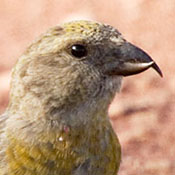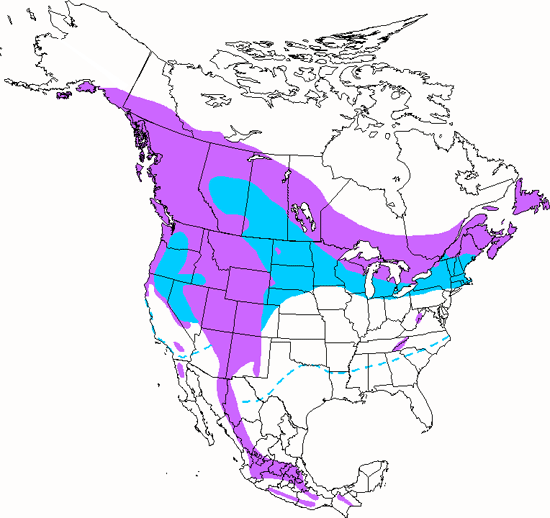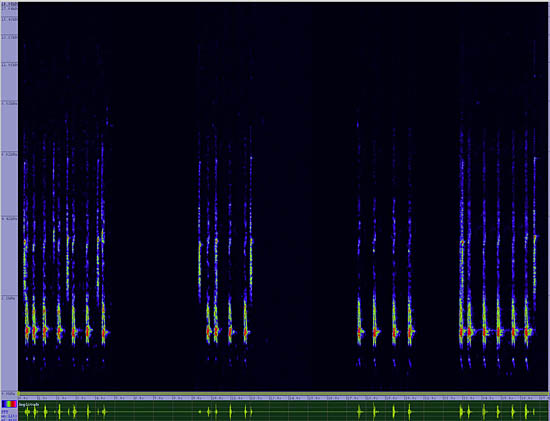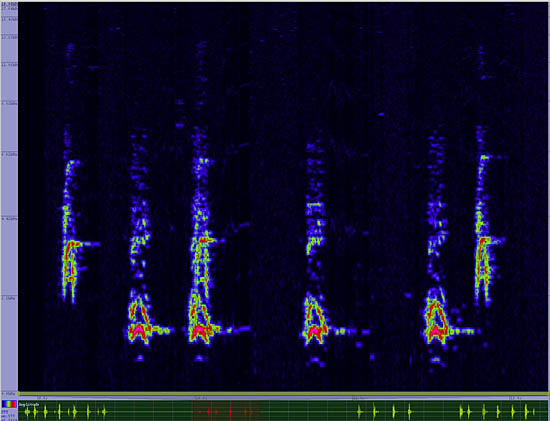Red Crossbill
Loxia curvirostra

Perching
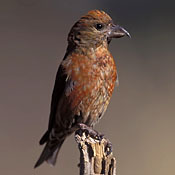
Length: 6 in. (16 cm )
Dependent on pine cones for food, the bizarre crossed bill of this species is used to deftly extract seeds from this otherwise difficult source of food. Because of their dependency on this single source of food, the populations of Red Crossbills are constantly wandering to find local eruptions of cones. Where they were common one year, they may be completely absent the next. They also nest opportunistically from late winter to early spring. The nest is made of twigs and placed on a high horizontal branch away from the trunk. The hatchlings are fed a regurgitated puree of pine cone seeds. This species is usually in small flocks year round.
The four-digit banding code is RECR.
Bibliographic details:
- Article: Red Crossbill
- Author(s): Dr. Biology
- Publisher: Arizona State University School of Life Sciences Ask A Biologist
- Site name: ASU - Ask A Biologist
- Date published:
- Date accessed:
- Link: https://askabiologist.asu.edu/activities/bird/red-crossbill
APA Style
Dr. Biology. (). Red Crossbill. ASU - Ask A Biologist. Retrieved from https://askabiologist.asu.edu/activities/bird/red-crossbill
Chicago Manual of Style
Dr. Biology. "Red Crossbill". ASU - Ask A Biologist. . https://askabiologist.asu.edu/activities/bird/red-crossbill
Dr. Biology. "Red Crossbill". ASU - Ask A Biologist. . ASU - Ask A Biologist, Web. https://askabiologist.asu.edu/activities/bird/red-crossbill
MLA 2017 Style
Be Part of
Ask A Biologist
By volunteering, or simply sending us feedback on the site. Scientists, teachers, writers, illustrators, and translators are all important to the program. If you are interested in helping with the website we have a Volunteers page to get the process started.

